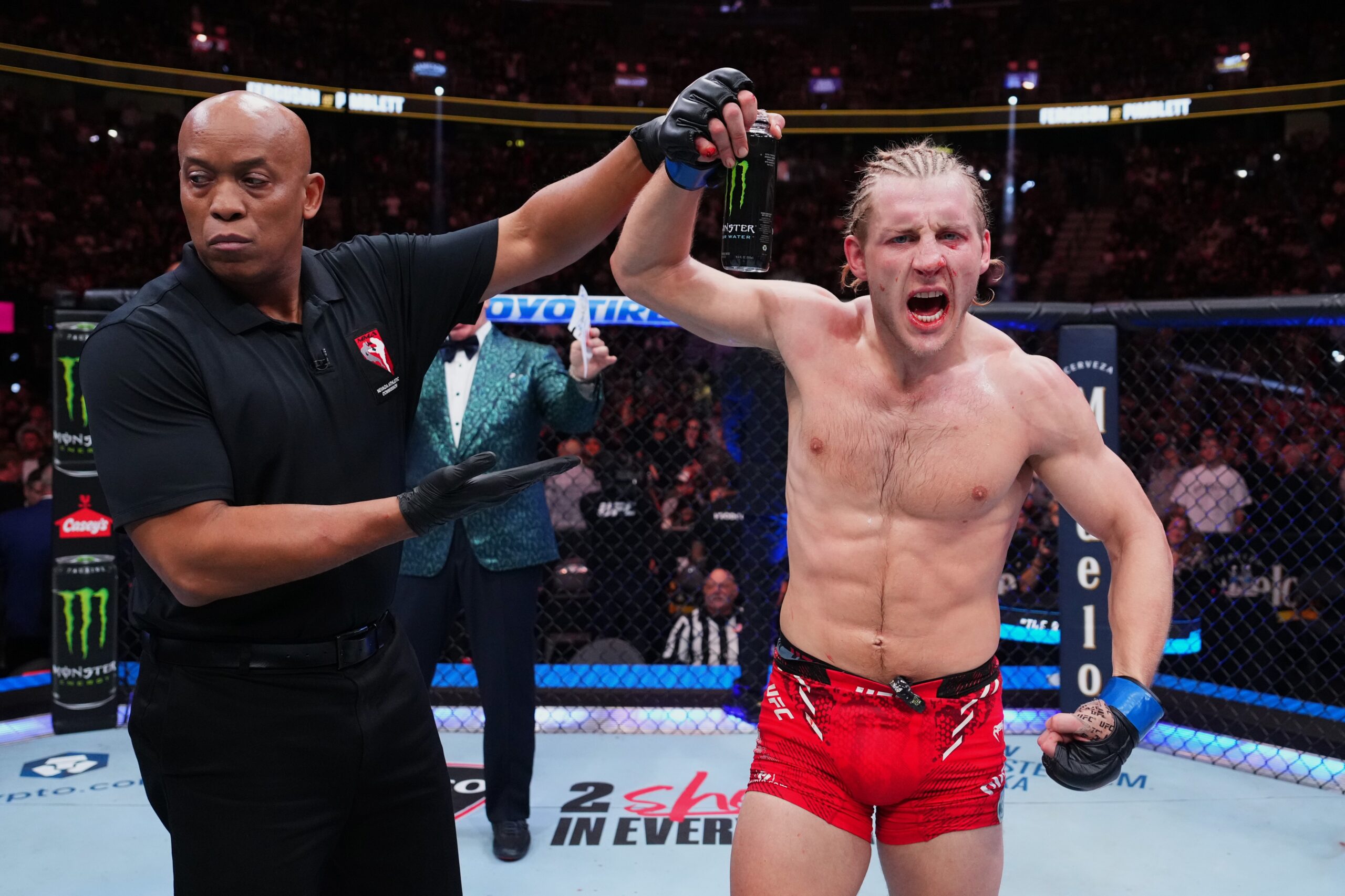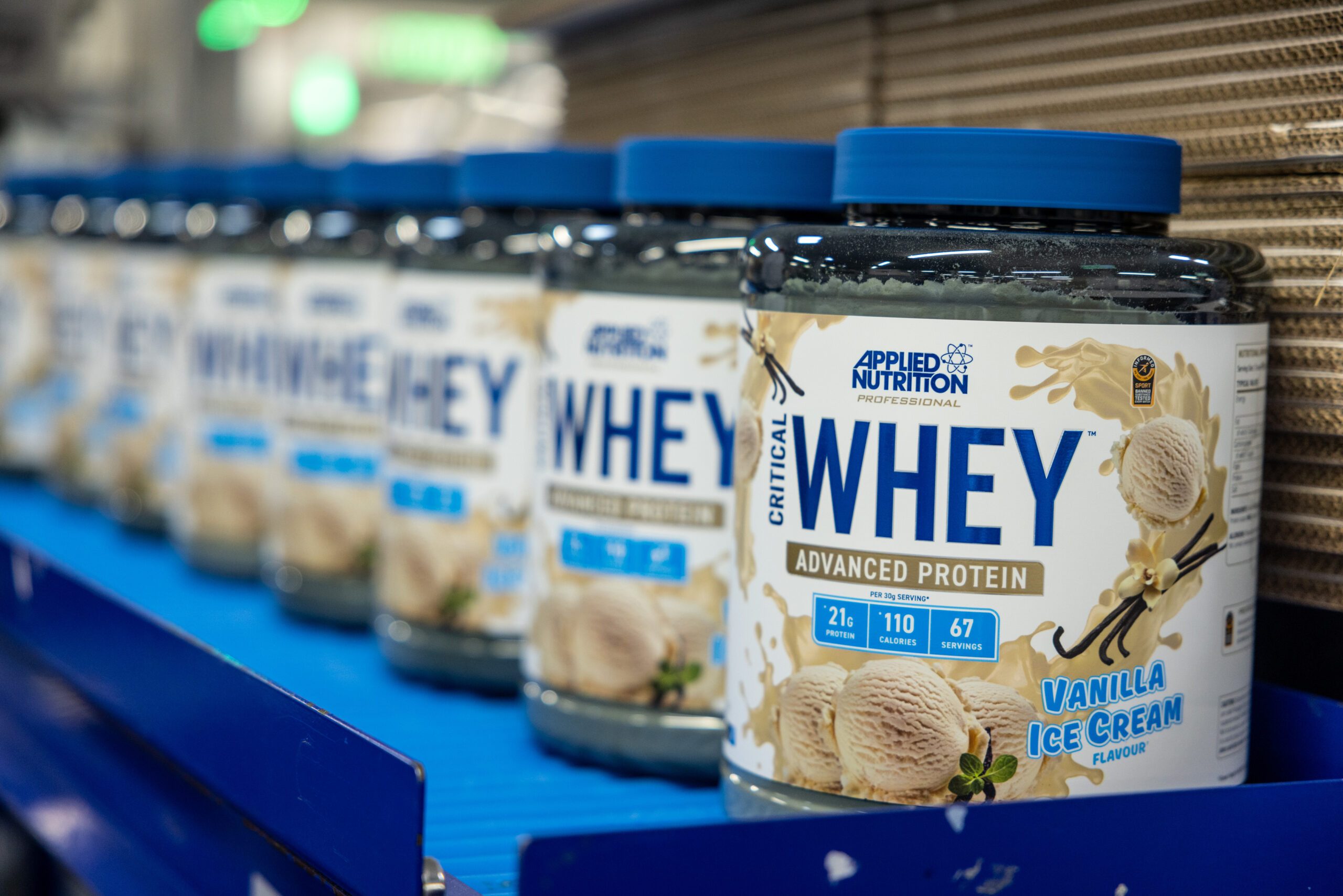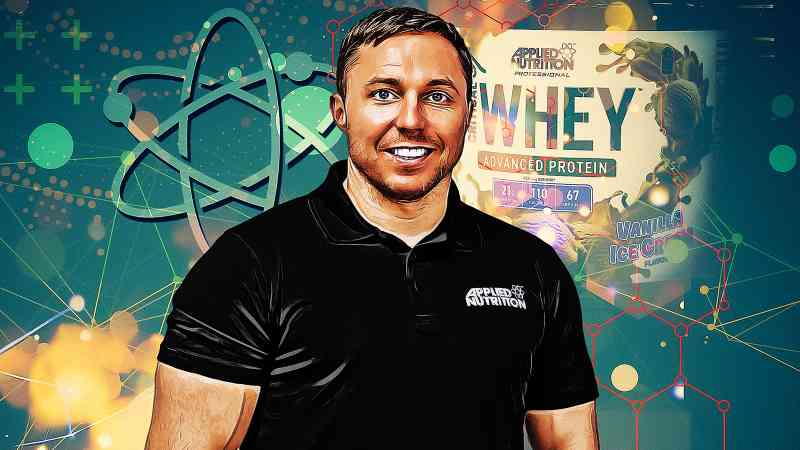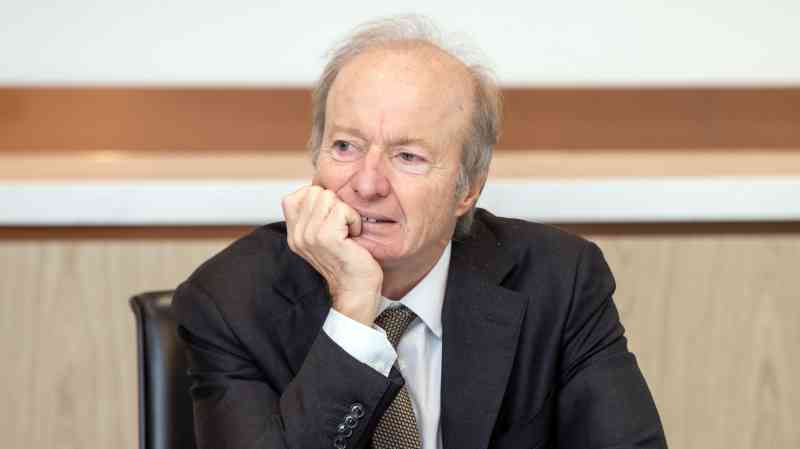The protein shake addict looking to pump up the City
Thomas Ryder dons a lab coat and a hairnet and bounds into a noisy, windowless room. Inside there are five production lines cranking out herbal tablets, protein powders and isotonic gels that promise all manner of health benefits to those who consume them.
The stocky Scouser grabs a tub filled with something called cola-flavoured beef protein powder. “That’s made from the skin of a cow,” he says as if it’s the most normal thing in the world. “It used to be made from the bones but it stunk and tasted like crap.”
Ryder is a sort of Willy Wonka figure for today’s protein-obsessed society and we are standing in his chocolate factory. The manufacturing facility of Applied Nutrition, the supplements business that Ryder took over a decade ago, is set on a business park in Knowsley, Merseyside, a few miles from the council house where Ryder was raised by his grandparents.
Now, the 40-year-old is plotting a stock market float that could land him a £125 million payday.
Applied Nutrition, which is backed by the athleisure giant JD Sports, is intending to float on London’s main market in the fourth quarter of this year. Ryder plans to sell down his 55 per cent stake to 30 per cent in an offering that is tipped to value Applied Nutrition at about £500 million, potentially landing it a place in the FTSE 250.
Applied Nutrition’s sales grew by 41 per cent to £86 million last year and pre-tax profits came in at £26 million.
“I know the potential and we have not scratched the surface. I want to be part of that journey,” Ryder said. “We are looking to be conservative on the valuation, we are not front-loading this. We know we need to respect the market and then hopefully the market will respect us.”

Applied Nutrition has won endorsements from athletes including the UFC fighter Paddy “The Baddy” Pimblett. However, the company sells everything from collagen peptides to mushroom powders to appeal to anybody willing to use supplements to boost their health. The brand’s latest ambassador is Coleen Rooney.
The company’s chief executive — who gobbles up Applied Nutrition’s protein powder, creatine, collagen and greens powder on a daily basis — has been showing prospective investors around the facility of late.
Ryder’s operations director, Steven Granite, jokes that his boss’s Scouse accent and machinegun delivery has left some City fund managers in need of a translator. the firm’s public debut will be closely scrutinised in a market where floats have been few and far between.
Ryder’s entrepreneurial achievements have come against the odds. As a child he lived in a council flat where he had to climb four flights of stairs just to reach the front door. Difficult circumstances at home meant Ryder spent much of his early years at his grandparents’ council house in Kirkby, a deprived town on the outskirts of Liverpool.
After Ryder’s father died when he was just 12, he moved in with them full time. He credits his work ethic to his grandfather, who did 12-hour night shifts as a security guard, seven days a week, at St Johns Market shopping centre.

“With them low-paid jobs you had to work long hours just to make ends meet. My nan and grandad absolutely raised me. Obviously we didn’t have a lot of money but they made sure I never went without anything. I have to attribute [my success] to them.”
Ryder left school at 16 with a determination to build a more prosperous life for himself. While working as a scaffolder with the local council, he pursued his own ventures on the side. After clocking off from the day job, he spent his evenings delivering pizza for Sopranos, his takeaway business.
Ryder was a gym addict fascinated by workout supplements, so, aged 18, he opened Body Fuel, a shop selling protein powders and creatine, which can help to build muscle. In the late Noughties, aged 24, Ryder went full-time with supplements and began selling to gyms and specialist stores. One of the products Ryder sold was Critical Mass, a protein powder produced by a struggling brand called Applied Nutrition.
In 2014, Ryder took over the brand and reformulated the products to lower their sugar content and enhance the flavour. The tubs of powder started to gain traction with bodybuilders but Ryder soon found himself grappling with rocketing costs, so he brought production in-house.

Ryder rented a tiny factory on the Knowsley industrial estate, bought a 30-year-old blender and hired his first four members of staff. He quickly realised he had a business he could scale up.
The global sports nutrition market has grown 51 per cent to $28.1 billion (£21.5 billion) over the past five years and research firm Euromonitor forecasts it will grow to $37.6 billion by 2028 “Fifteen years ago, sports nutrition in the UK was seen as something that was just for bodybuilders, but now it’s more of an everyday thing. People who just walk their dog are taking supplements,” Ryder says.
However, there are still plenty of cynics who question the health claims made by the products that line the shelves of health-food stores. Are companies such as Applied Nutrition peddling quackery that exploits the ignorance of people with an earnest desire to improve their health?
“That cynical view is still all too common and it’s down to a lack of knowledge,” says Ryder, adding that his products are produced according to European Food Safety Authority guidelines.
Myprotein founder Oliver Cookson, who has now launched Verve, a “supergreens” business, said that consumers were gravitating towards the sort of “high-quality, science-backed” supplements produced by Applied Nutrition.
In 2020, Ryder began talks with a handful of private equity firms over selling part of his stake in the company. At that time, Applied Nutrition was holding unrelated talks with JD Sports to manufacture a range of supplements to be sold in its gym chain.
On his first meeting with Ryder, Peter Cowgill, who was JD’s executive chairman, committed to buy a stake in Applied Nutrition at a valuation that matched the offer from private equity. Ryder jumped at it.
“It was apparent from the first meeting that Tom had huge enthusiasm, an understanding of his market and was prepared to do what it takes to succeed,” Cowgill said. “I saw a bit of myself in him … if anyone is going to win in this market, then Tom has the credentials to do it.”
JD, which owns a 30 per cent stake, plans to sell down to between 5 and 10 per cent at the float. Since he left JD in 2022, Cowgill reinvested in Applied Nutrition in a personal capacity and is set to be appointed to the board as a non-executive director. The board, which is chaired by AJ Bell founder Andy Bell, also features former Holland & Barrett boss Tony Buffin, drinks industry veteran Marnie Millard and JD Sports finance director Dominic Platt.
Ryder has built a company in his own image: humble and down to earth. The boss bounds around the narrow corridors of the unaesthetic office greeting everybody enthusiastically by their first name.
However, Applied Nutrition may have to rethink how it operates once it has other shareholders to answer to. For example, Ryder appointed his girlfriend of several years, Lydia Paxton, as head of HR in May last year. While Paxton reports to the chief operating officer, rather than Ryder himself, it raises the question of whether staff would feel comfortable sharing a confidential grievance with HR.
“She [Lydia] was the head of HR at another company [beforehand] and I like to think employees feel they could speak to her in a confidential manner without anything getting back to me,” he says. “She is very professional and she takes her job very seriously.”
Paxton is currently on maternity leave — the couple had twin daughters a few months ago — and Ryder says she has not made a decision about whether to return to work.
Ryder believes that floating his business will help give Applied Nutrition the profile it needs to compete with industry giants such as Glanbia Performance Nutrition and protein brand Dymatize, produced by New York-listed BellRing Brands.
Yet for somebody with such lofty ambitions, Applied Nutrition has been run prudently. The company, which is debt-free, has always funded its expansion through its own cashflow. It is just putting the finishing touches to an extension of its manufacturing facility that will give it the capacity to handle almost double the sales it does now.
The opportunity to grow in America — which makes up half of global supplement sales — will form a central part of Applied Nutrition’s pitch to investors. The company opened an office in Dallas in 2022 and Ryder expects sales in the country — £5 million last year — will grow to a point that it justifies opening a manufacturing facility across the Atlantic.
“We have a huge runway for growth over the next couple of years but, once you add in the US, I think we can knock the lights out.”
For now, though, Ryder looks around his warehouse on Merseyside, stuffed full of powders destined for delivery to everywhere from Malta to Saudi Arabia and China, with pride etched on his face.
“The fact we are making products in my backyard in Knowsley and sending them all over the world — that means a lot to us.”





Post Comment